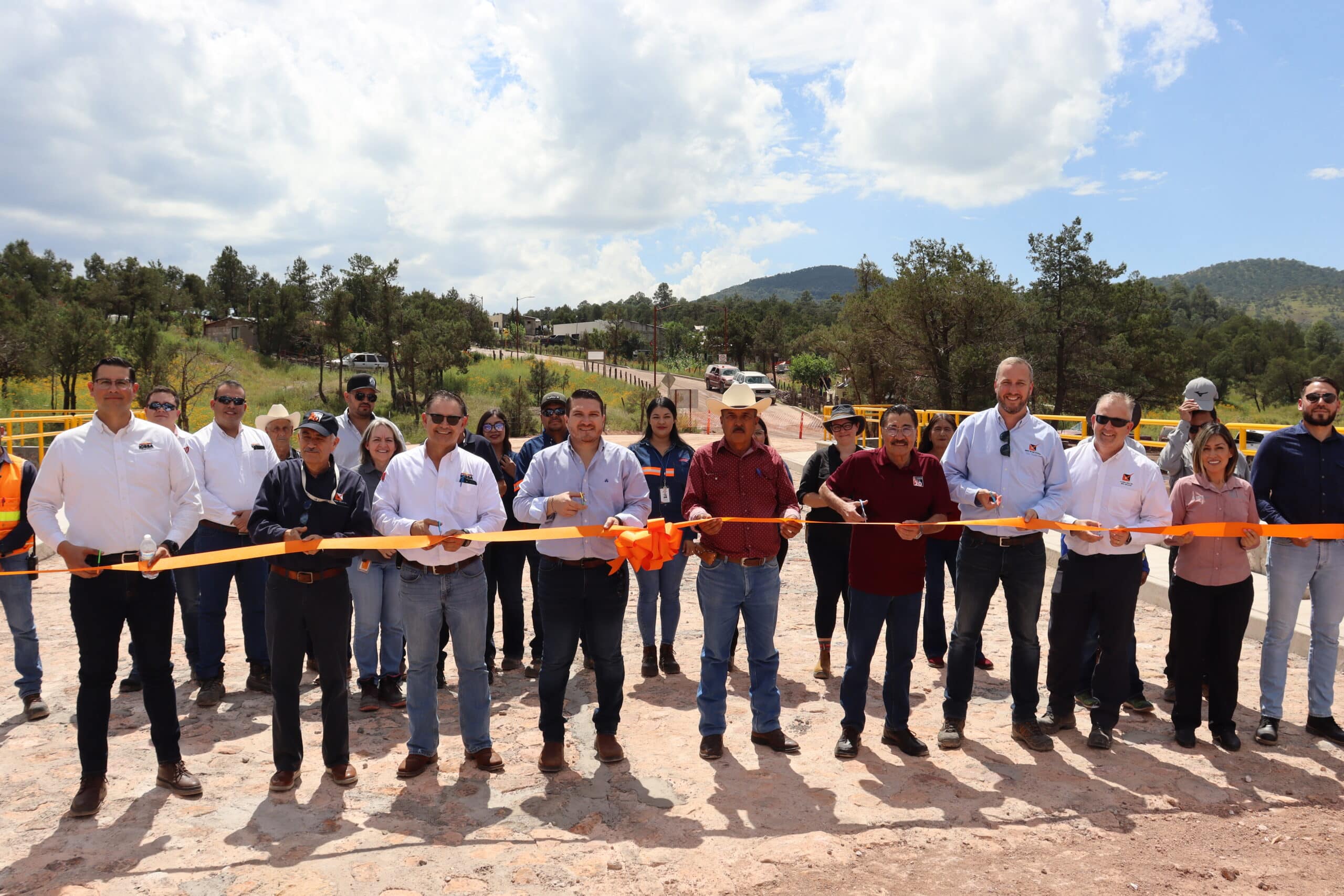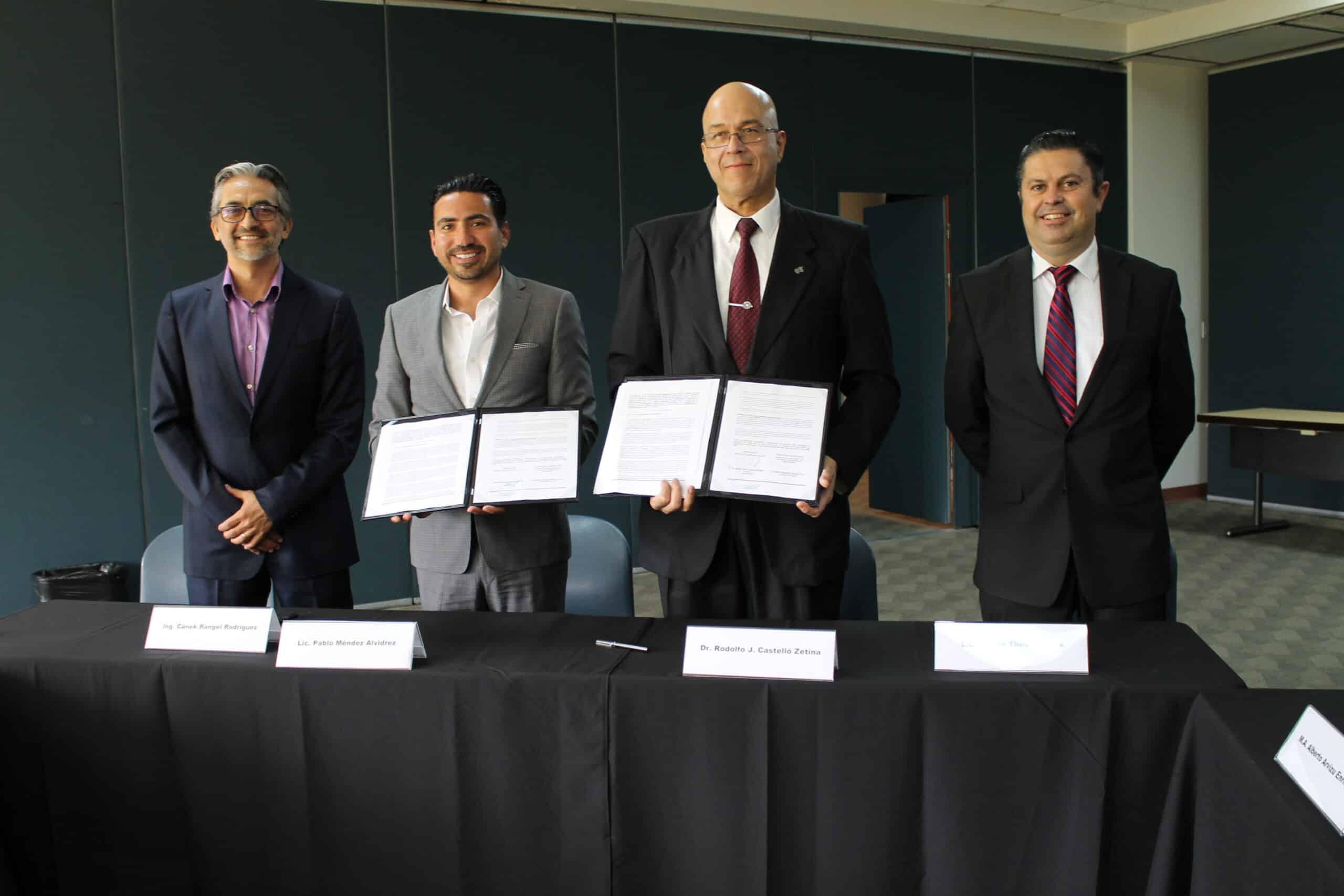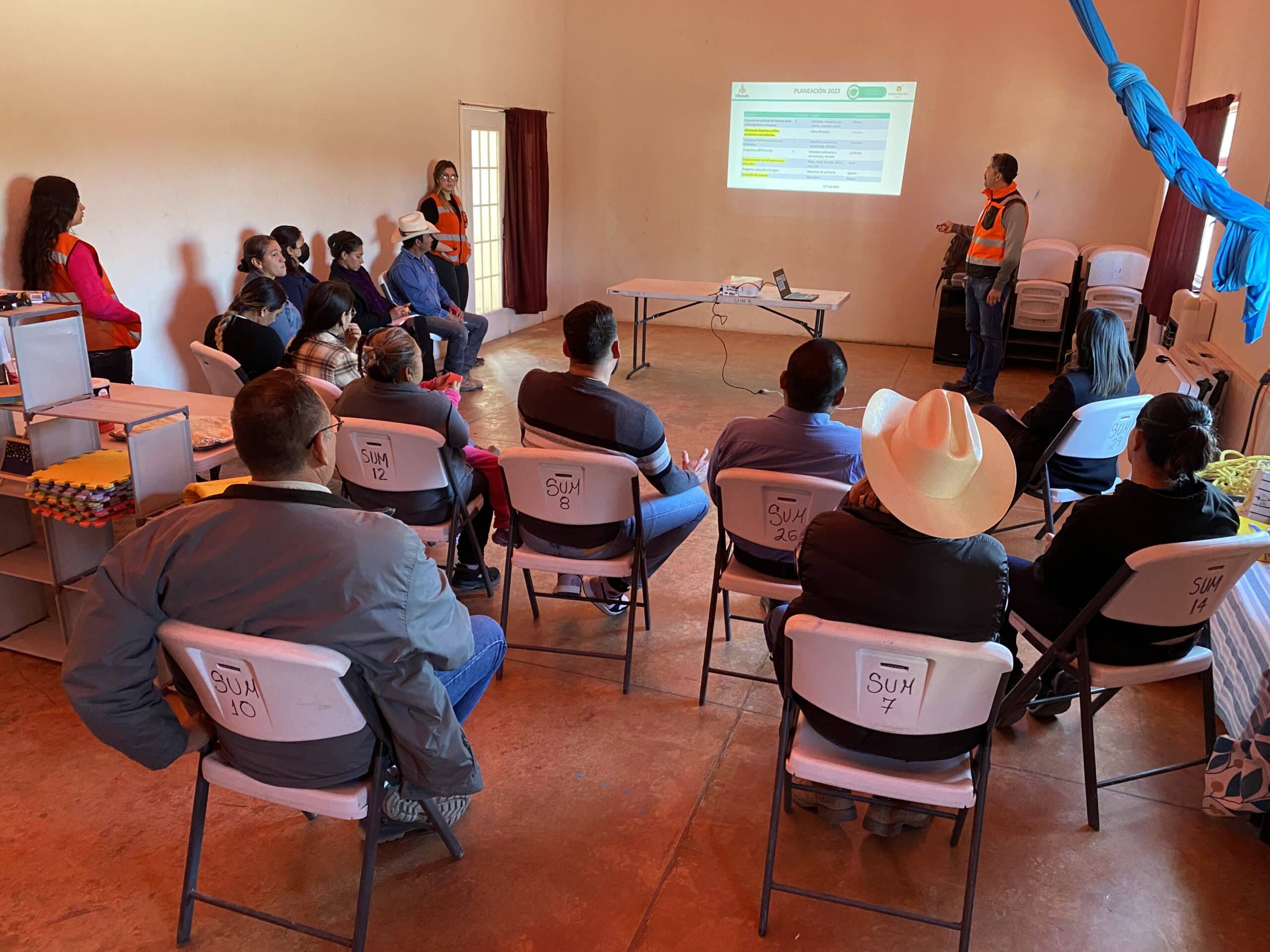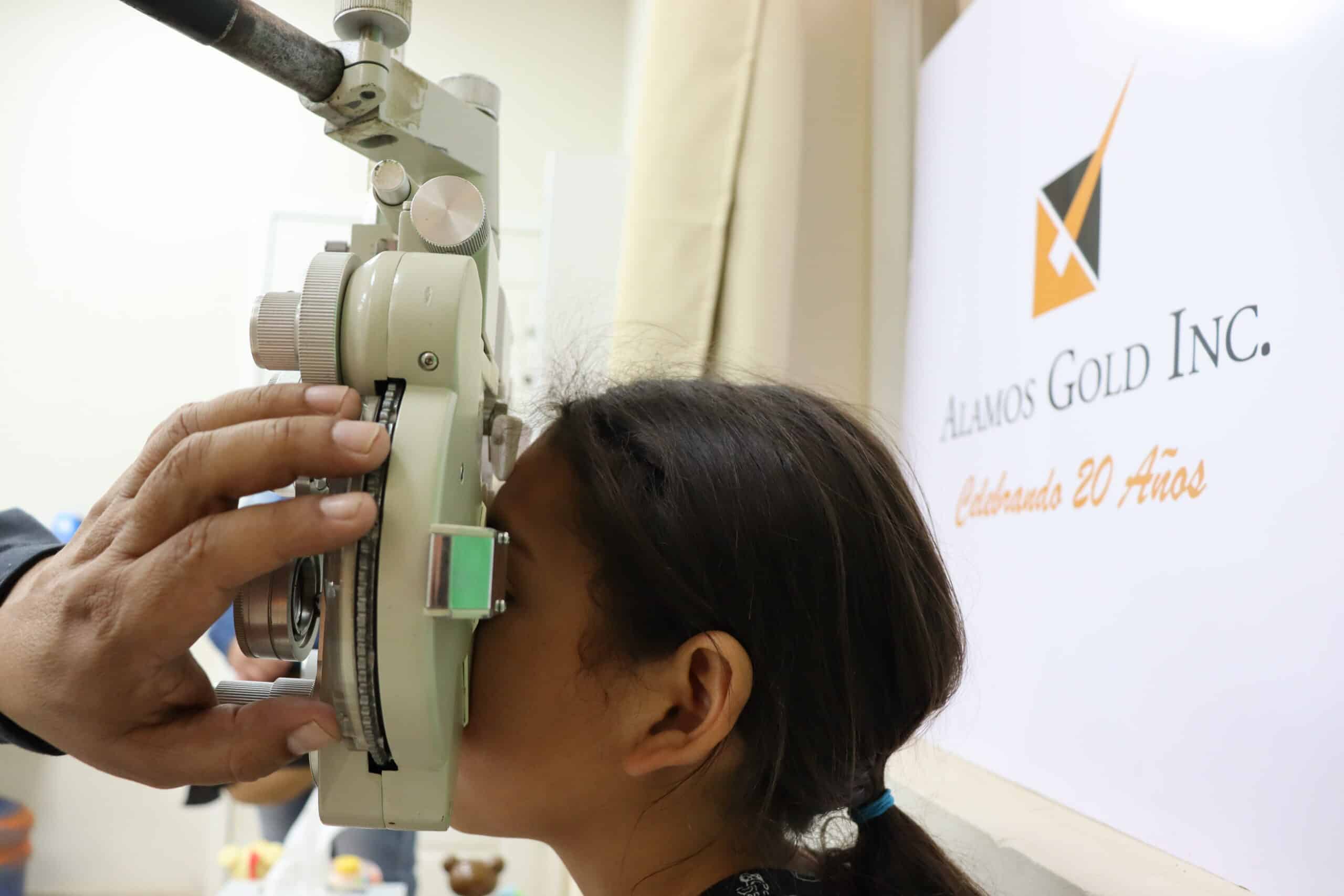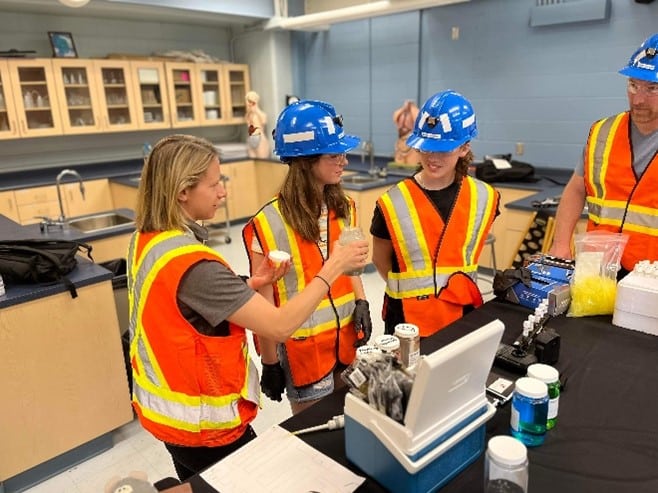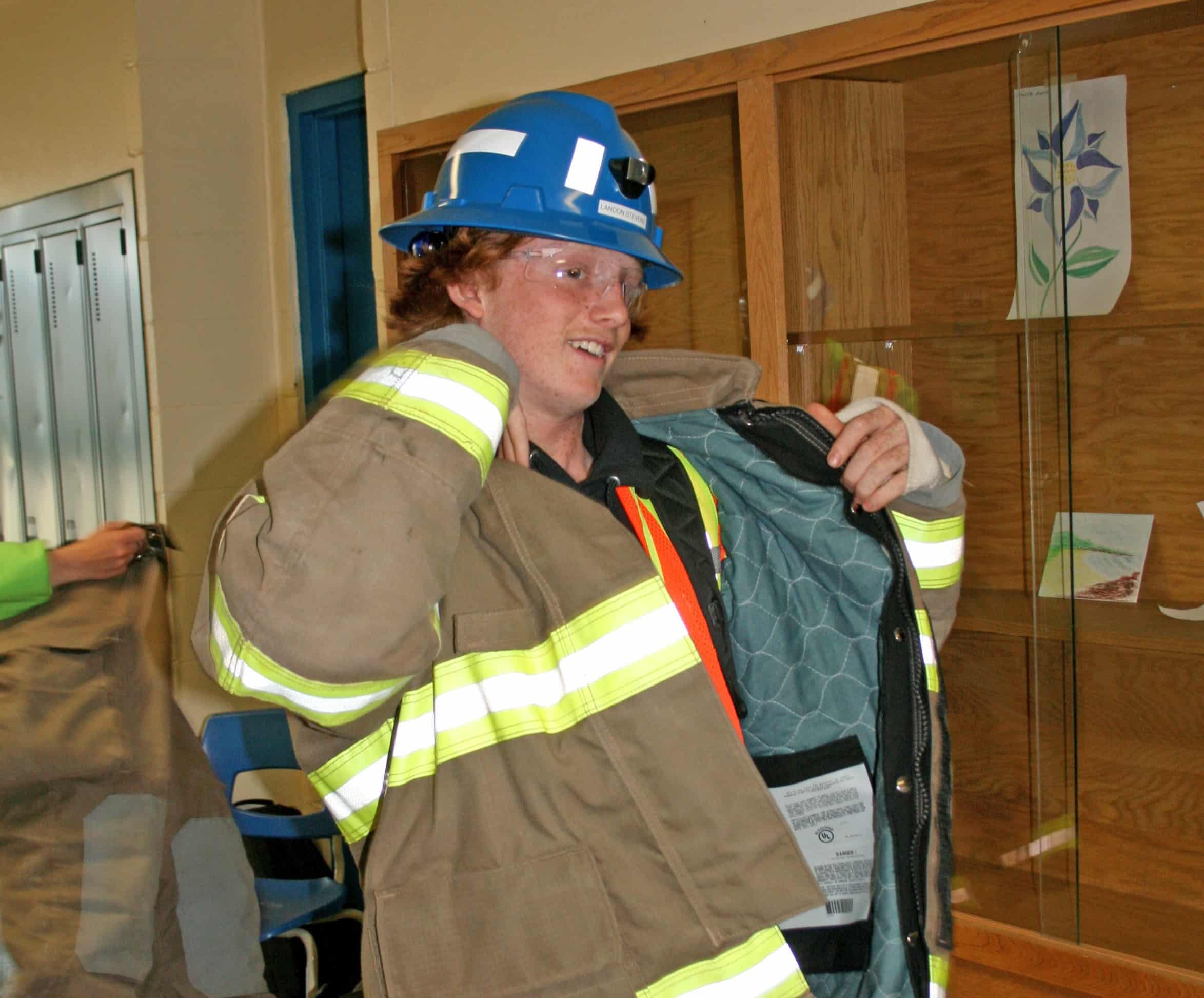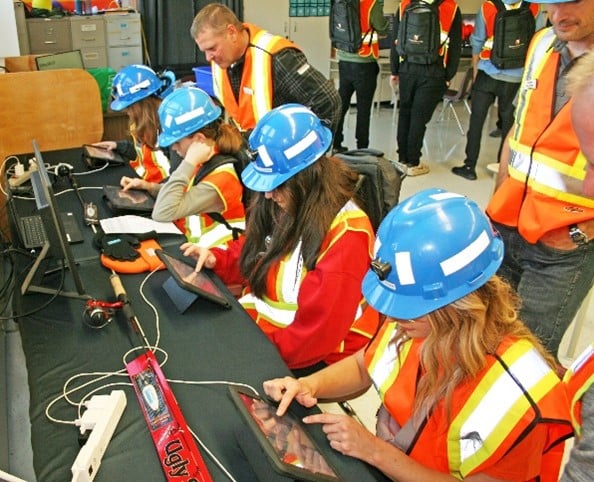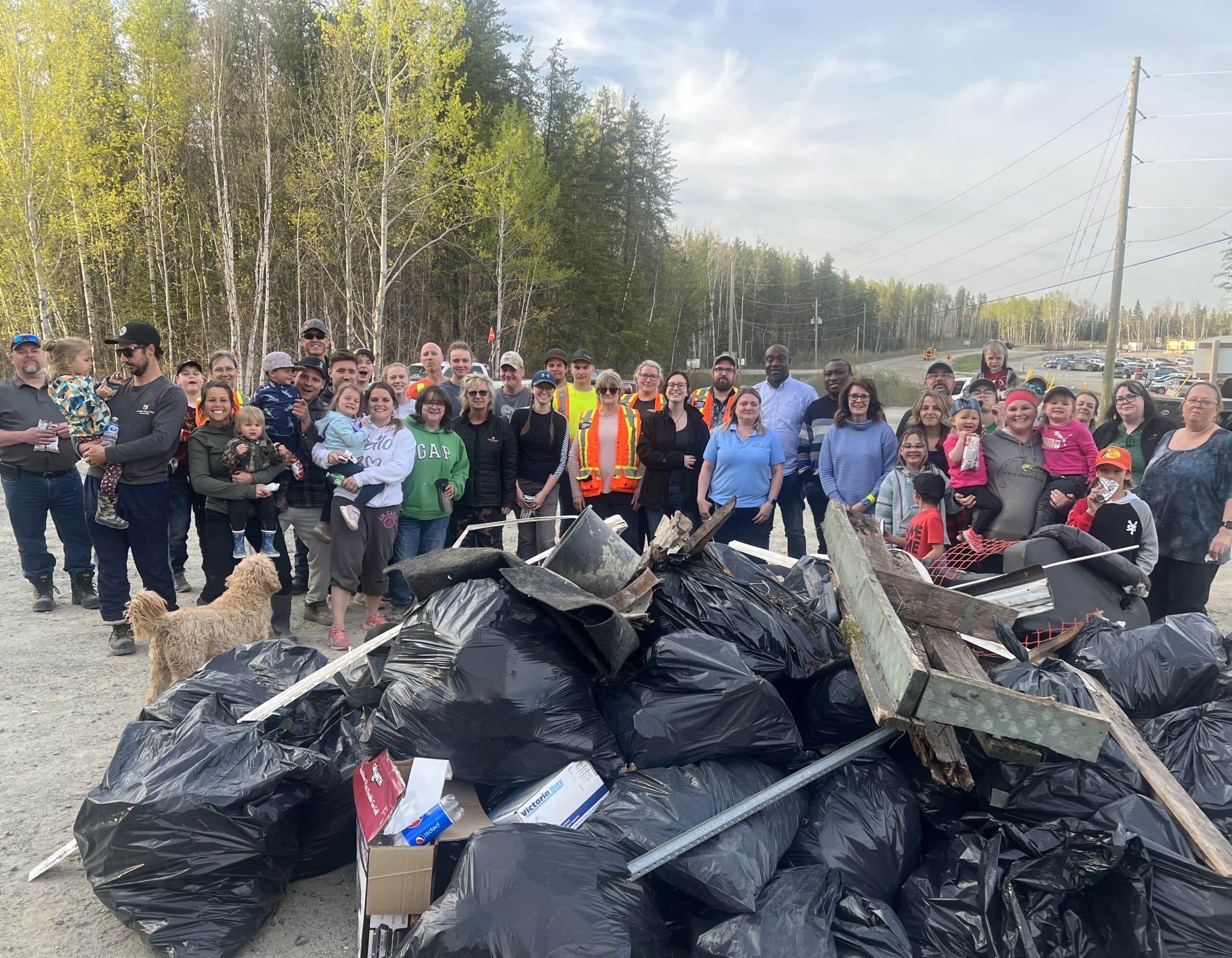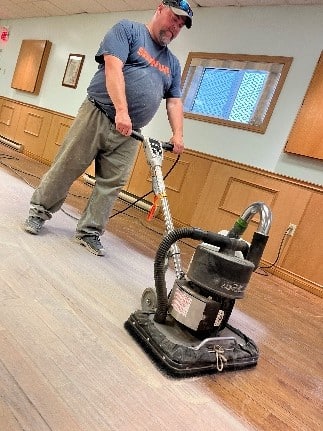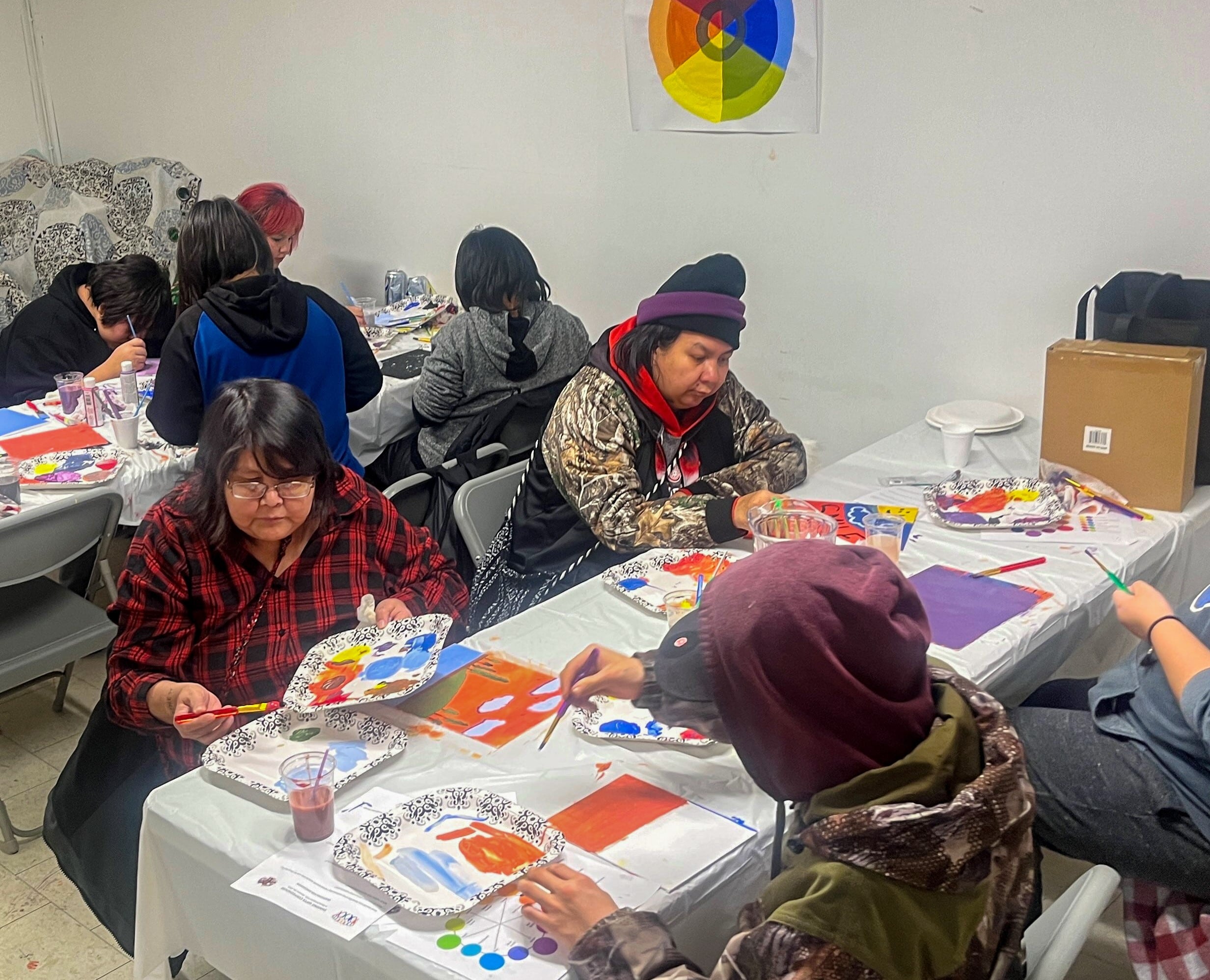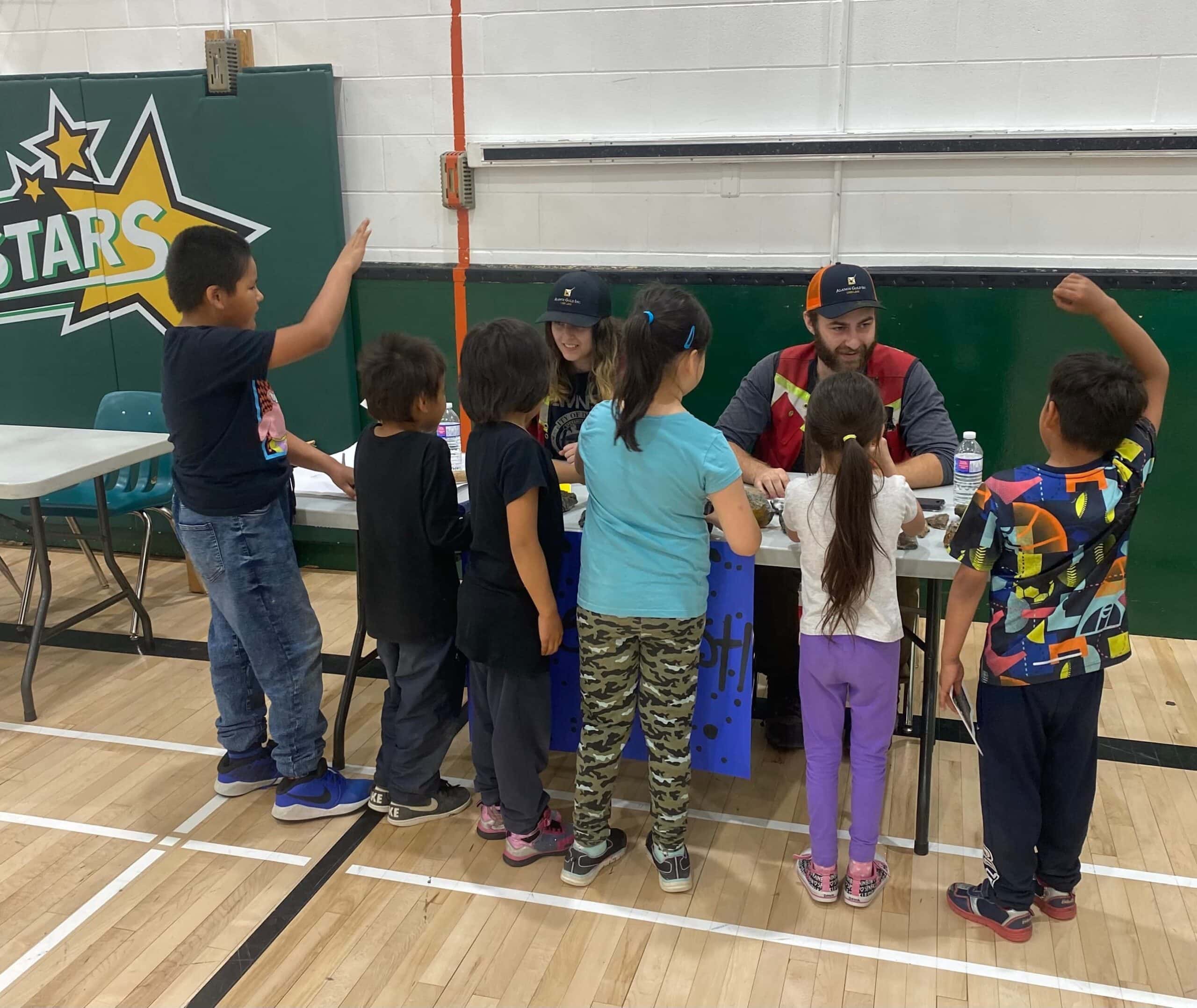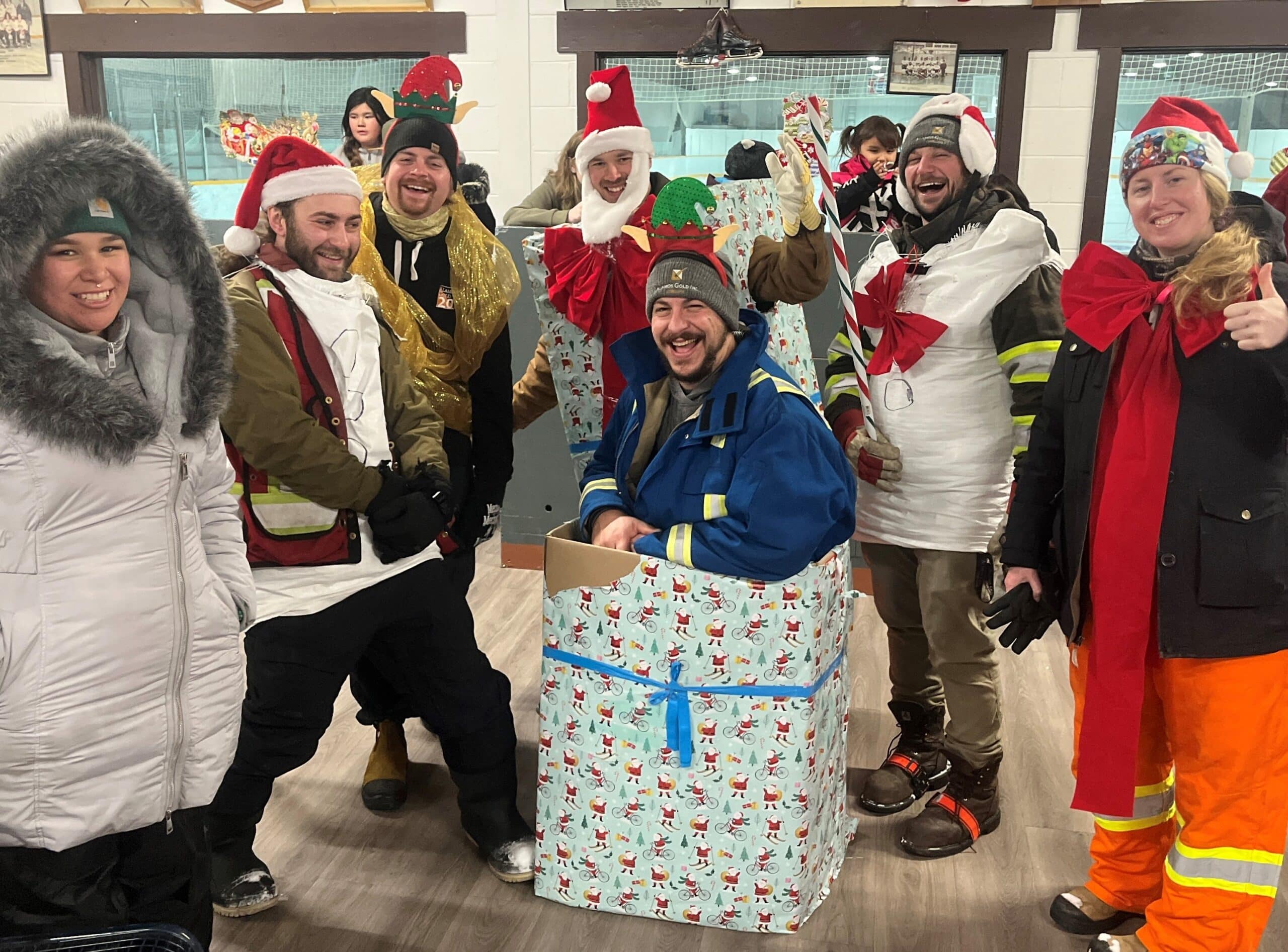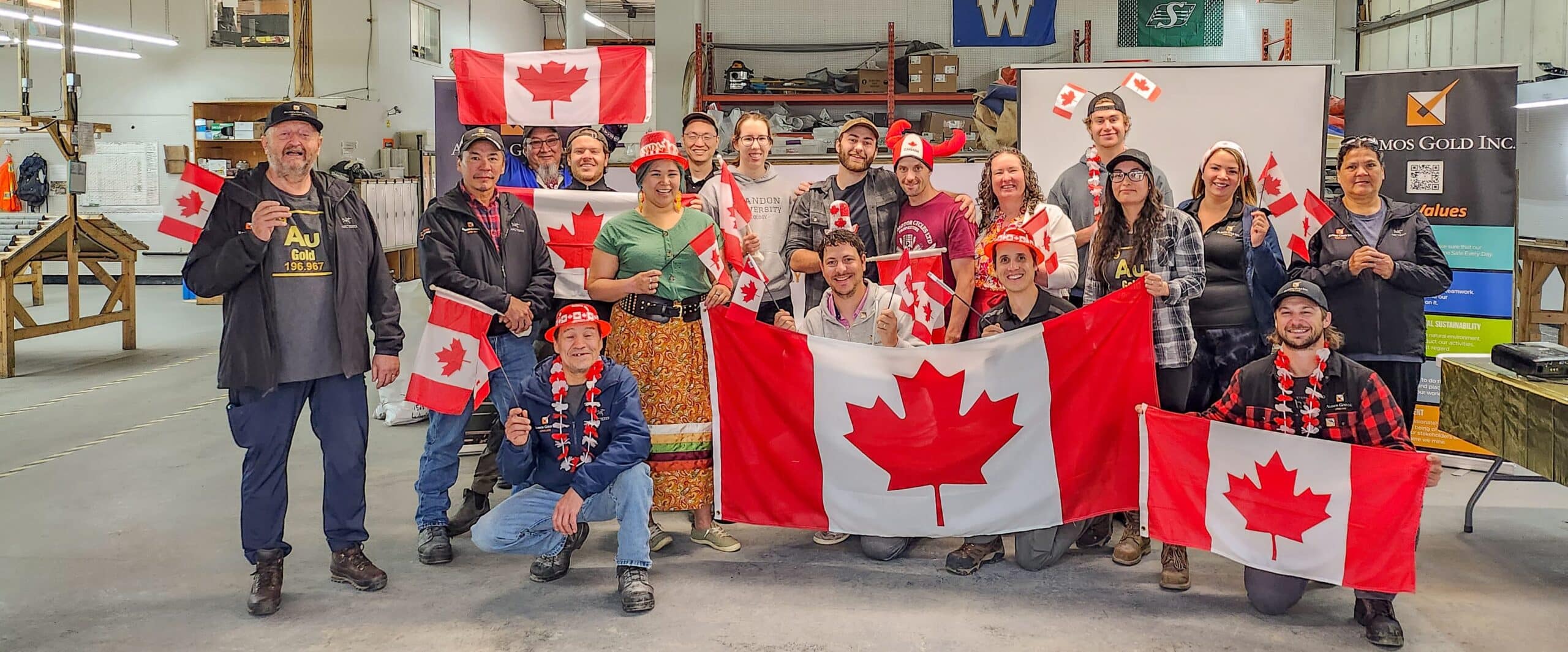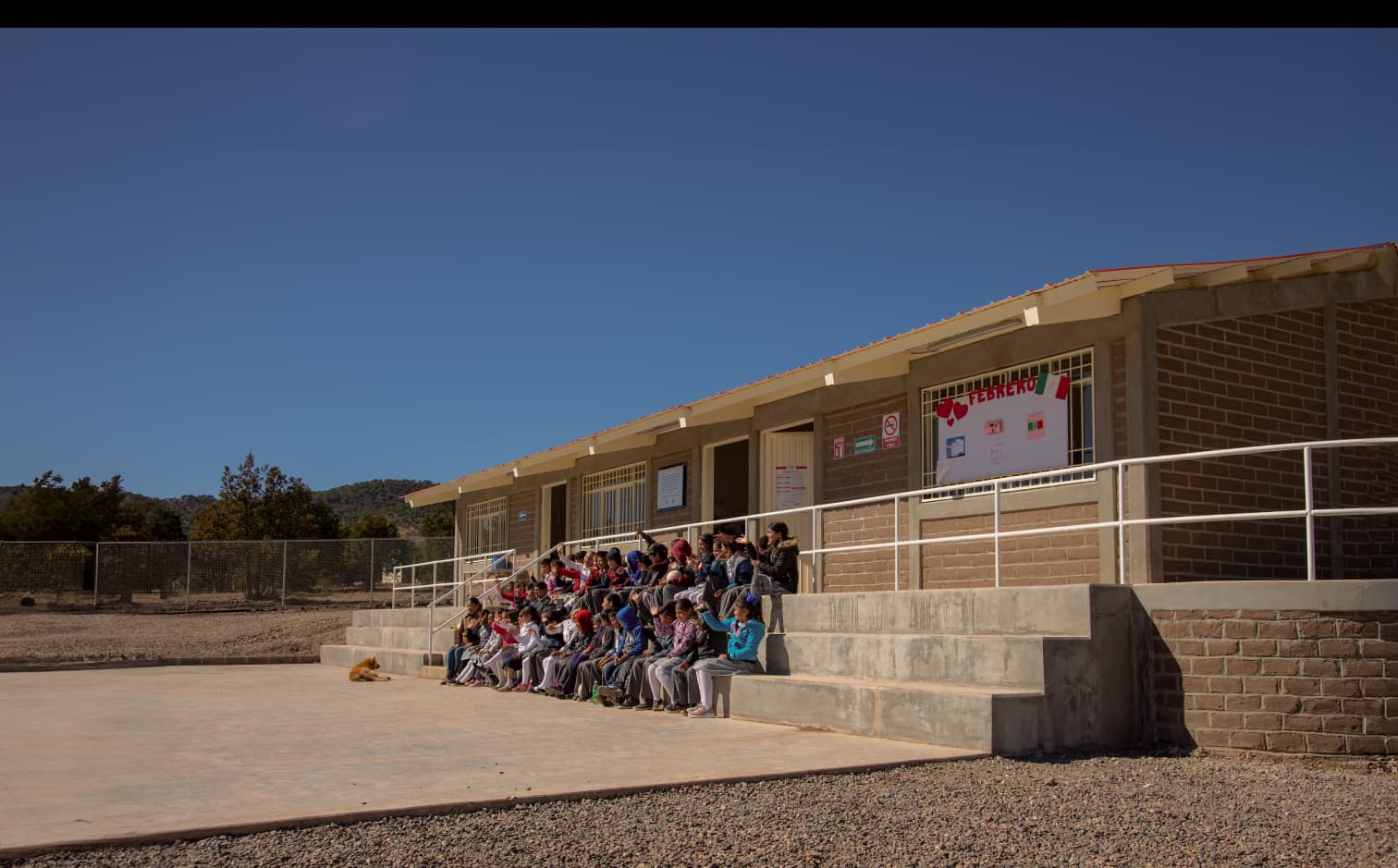
ESG Report 2023
Communities
Human Rights & Respect
Our commitment to respect the human rights of our local communities begins with our Human Rights Policy, and is embedded into company culture. The Policy is guided by the International Bill of Human Rights, the United Nation’s Guiding Principles on Business and Human Rights, the Voluntary Principles on Security and Human Rights, and the World Gold Council’s Responsible Gold Mining Principles and Conflict-Free Gold Standard. Our Policy stipulates commitments to consider all communities affected by our operations, and also gives specific attention to the rights of Indigenous Peoples.
One way Alamos demonstrates respect for our host communities is through partnership-oriented community engagement, which we aim to initiate at the earliest stages of project development. The responsibility for Community Relations lies at the most senior level of our organization, with members of Alamos’ Executive Leadership team. Effective community engagement fosters relationships based on mutual understanding and trust, builds stakeholder support, and allows us to identify and manage the stakeholder-related risks unique to each operation. Our internal Community Engagement Standard sets the minimum requirements for all Alamos business units when conducting community outreach.
All three of our operating mines and the Lynn Lake Project have conducted Social Impact Assessments to identify the risks and opportunities associated with the rights and interests of their respective local communities. They have all also implemented local community engagement committees that include vulnerable groups. The significant actual and potential negative social impacts that have been identified through these systems and procedures, across all of our operations and projects, include: pressures on infrastructure and housing services; income inequality; reduced access to land and water; divisions between those who benefit from the mine and those who don’t, and; general changes to community social dynamics. In the case of our Mulatos Mine, the risk of home relocation due to competing land interests has been realised and is discussed in the Housing and Land section.
All Alamos mines and projects have processes in place to ensure the rights of our Communities are respected. At Mulatos and the Lynn Lake Project we have implemented formal community grievance mechanisms to assist with identifying, investigating and responding to concerns filed by our communities. In Ontario we rely on community engagement and stakeholder consultation with our local communities and Indigenous partners to manage concerns. Three community grievances were filed Company-wide during the year. One grievance was resolved within 30 days, and the remaining two were resolved within the reporting year. In 2023 there were once again zero (0) site shutdowns due to community-related factors across all Alamos locations.
Mechanisms for the Protection of Community Rights and Interests
Table 4.1
| Protection Type | Young-Davidson | Island Gold | Mulatos | Lynn Lake Project |
|---|---|---|---|---|
| Social Impact Assessments | True | True | True | True |
| Environmental Impact Assessments | True | True | True | True |
| Formal Community Development Programs | False | False | True | True |
| Stakeholder Engagement Plans based on Stakeholder Mapping | False | True | True | False |
| Community Engagement Committees | True | True | True | True |
| Formal Community Grievance Mechanism | False | True | True | True |
Across the global mining industry, security practices have been identified as a potential risk to the human rights of local communities. All security personnel at Alamos operating mines receive and complete human rights training. These training requirements also apply to private security contractors working with our teams. Per the Uppsala Conflict Data Program (referenced by SASB), the Heidelberg Conflict Barometer (referenced within the WGC’s Conflict Free Gold Standard), and our own self-assessment, none of our operations other than the Mulatos Mine are considered to be located in conflict-affected areas. As a result of ongoing, non-state violence and organized crime in Mexico, the security program at Mulatos is our most involved. Security personnel at this site have undertaken additional training to incorporate relevant aspects of the Voluntary Principles on Security and Human Rights (VPSHR) in performing their duties. For Alamos, aligning security practices with the VPSHR helps us minimize security-related impacts on local communities, and aligns our corporate policies with internationally recognized human rights principles. It also reduces reputational concerns and contributes to operational stability.
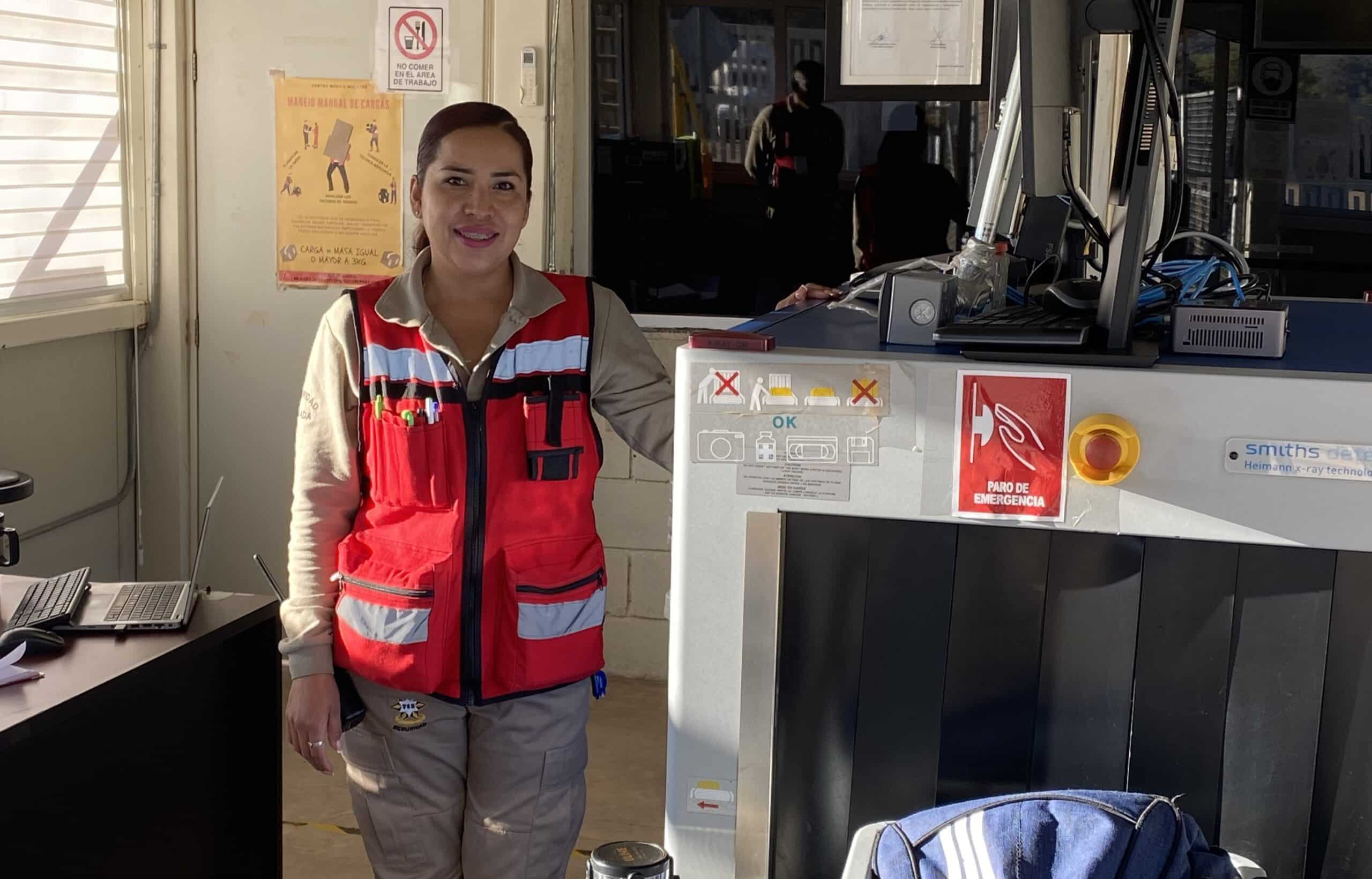
HUMAN RIGHTS & RESPECT SPOTLIGHT
Read More
In 2023, Alamos completed an independent assessment against the Voluntary Principles on Security and Human Rights at the Mulatos Mine in Mexico. Working with an independent consultant, the assessment included interviews and workshops with Alamos, private and public security teams, and involved members of the local community, to determine practices that strengthen our alignment and improve how we interact with local stakeholders. Many of the recommendations were addressed during the year, and plans are in place to incorporate remaining elements in 2024.
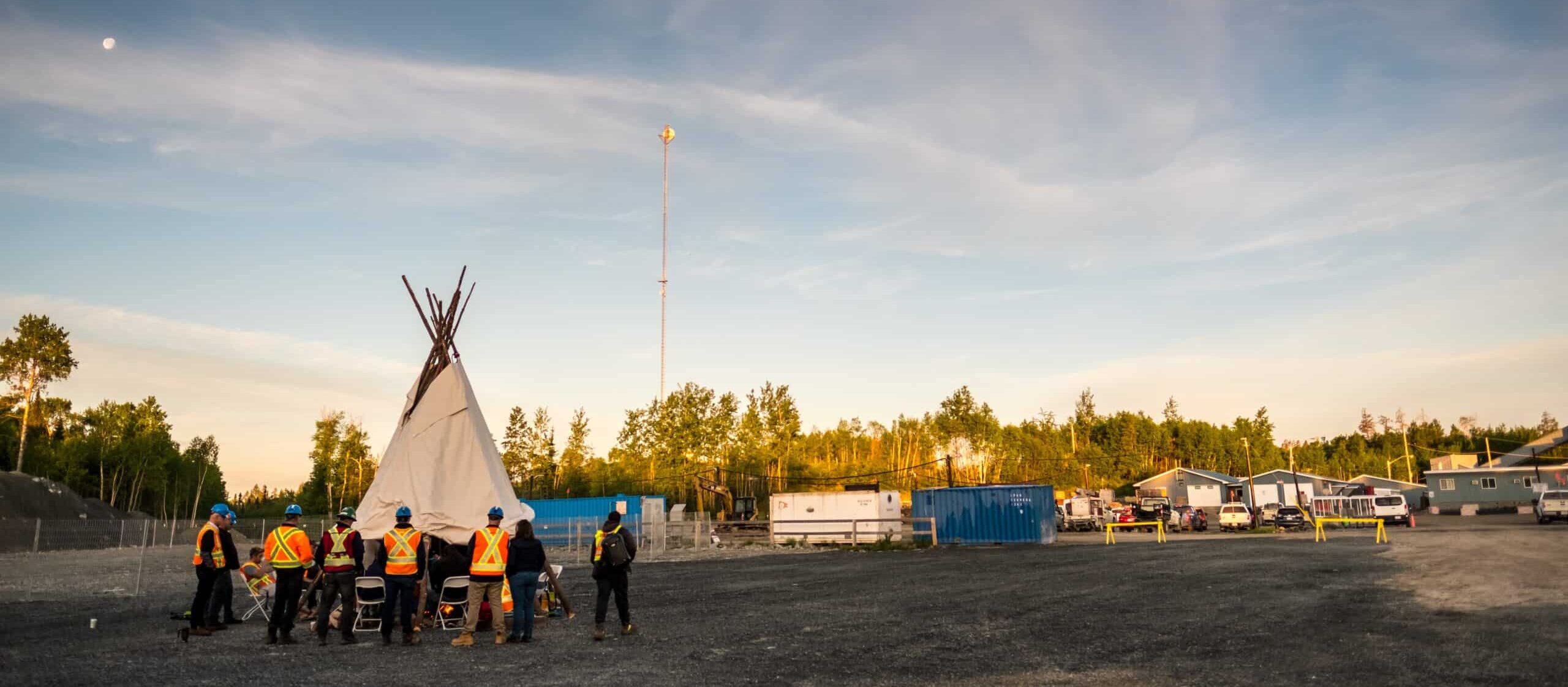
Rights of Indigenous Peoples
As a Canadian company, Alamos recognizes the special connection Indigenous Peoples have with the land, and our responsibility to recognize and respect their distinct rights and interests. The Young-Davidson Mine, Island Gold Mine, and Lynn Lake Project are all situated within the traditional territories of Indigenous Peoples, and Alamos is committed to protecting and preserving the local cultural heritage in each of these jurisdictions.
It is of the utmost importance that impacted Indigenous communities benefit from the existence of our operations to a degree deemed fair by the community themselves. Formal Participation Agreements are the most common mechanism for determining the specific terms and requirements to achieve this objective. At year-end 2023, the Young-Davidson Mine had in place three agreements (with the Matachewan First Nation, Temagami First Nation, and Wahgoshig First Nation), the Island Gold Mine had in place three agreements (with the Missanabie Cree First Nation, Michipicoten First Nation, and Batchewana First Nation) with one more underway, and the Lynn Lake Project had in place one agreement (with Marcel Colomb First Nation) with discussions pertaining to one more agreement underway.
Outside of existing agreements, Alamos is committed to ongoing, open, respectful dialogue with all Indigenous peoples who have an interest in our mines, to better understand different perspectives and discuss our shared interests in the environment. Some of the due diligence practices we employ to protect the rights and interests of Indigenous peoples include the employment of full-time Community Relations staff at Island Gold and Lynn Lake, participation of Indigenous stakeholders in environmental consultation committees, the maintenance of detailed stakeholder maps and engagement plans, the routine assembly of community consultation committees, and the presence of Indigenous engagement expertise within the Corporate senior management team.
There were no reported violations to the rights of Indigenous peoples at any of our locations in 2023.
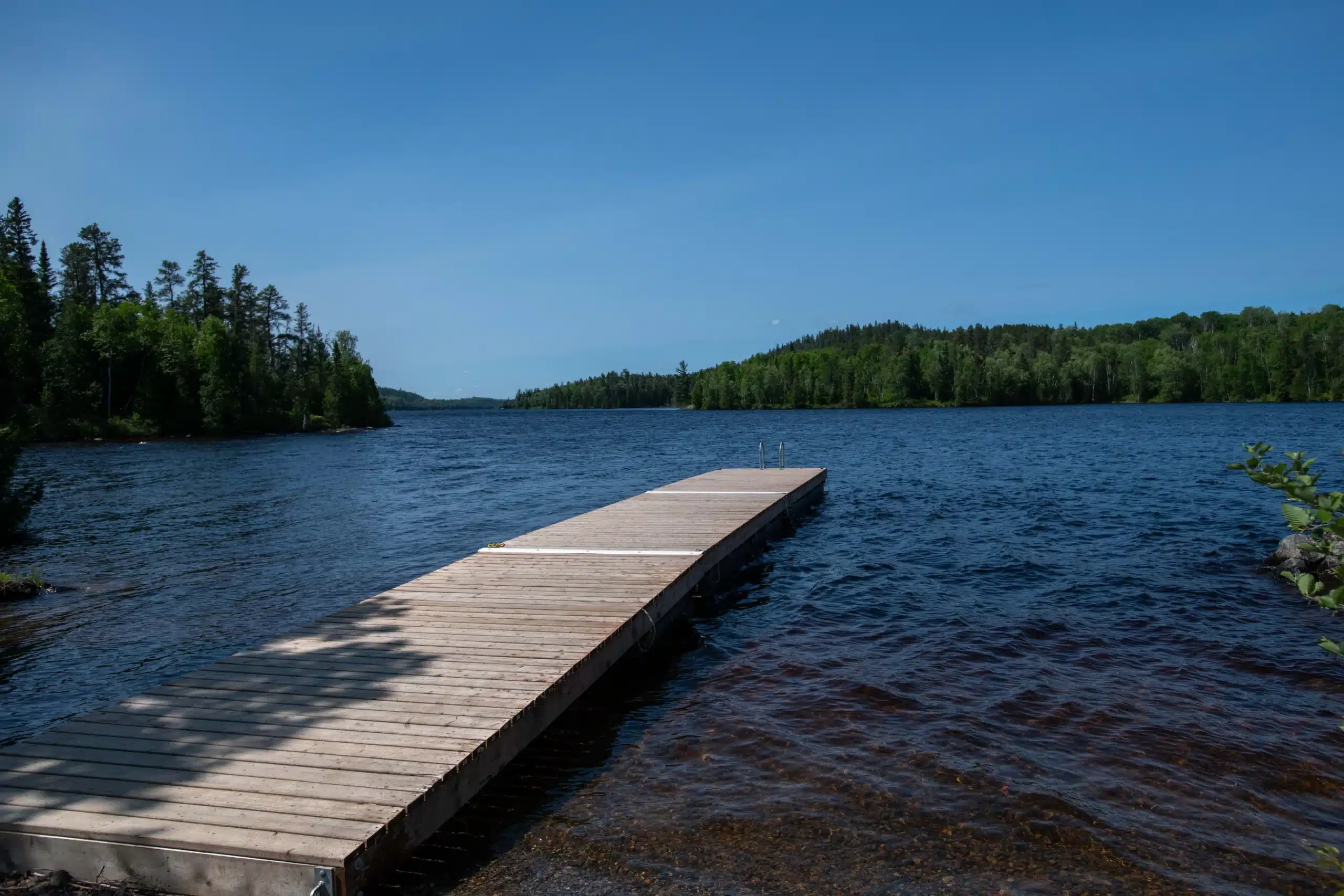
INDIGENOUS RELATIONS SPOTLIGHT
In June 2023, Alamos and Marcel Colomb First Nation (MCFN) celebrated the successful finalization of a Community Benefit Agreement for the Lynn Lake Gold Project. Leadership from both parties joined together in the Northern Manitoba community to recognize this positive collaboration. The Agreement solidifies Alamos’ dedication to partnership by outlining the specific benefit-sharing commitments that will support MCFN’s socioeconomic development for years to come.
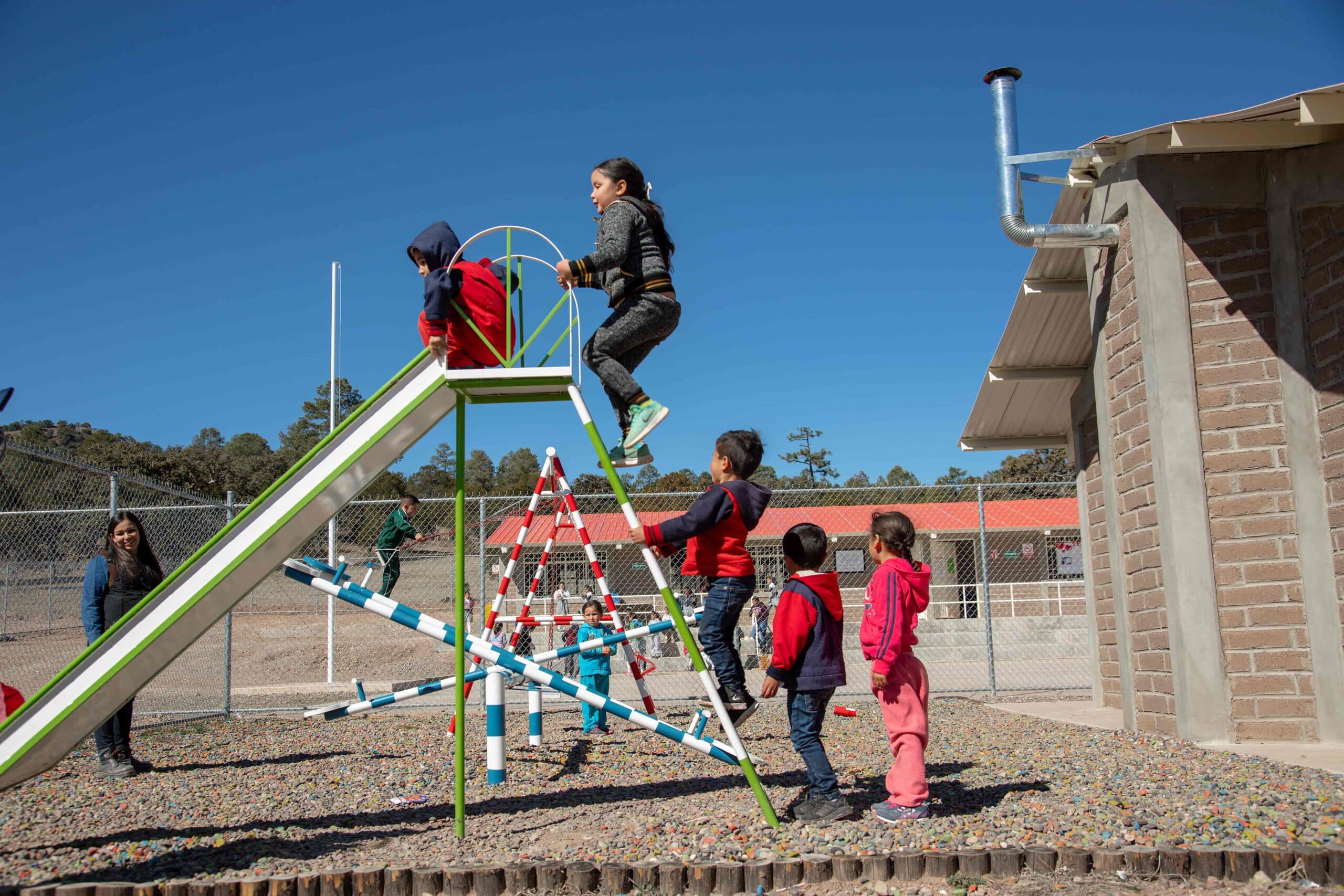
Community Investment
Wherever Alamos operates, we strive to be a respected and welcomed member of the community. Every Alamos location invests in their local community in ways that are contextually relevant. For investments, we consult with each community to determine their requirements via direct engagement with local representatives. For donations and sponsorships, we prioritize spend on initiatives aligned with both community and employee interests. In 2023 we contributed approximately US$2.2 million to local community initiatives.
IN-CASH
Some areas to which we commonly provide in-cash donations are infrastructure projects (housing, schools, health centers, and recreation facilities), cultural activities (traditional ceremonies, parades, sports, arts-based events, and festivals), and education (scholarships, school trips and events, uniforms, laptops/tablets, breakfast programs). 2023 examples include:
- CA$200,000 from the Toronto Head Office to the Princess Margaret Cancer Foundation to create and fund a 10-year limited term chair in gastrointestinal surgical oncology (the annual portion of a 10-year, CA$2,000,000 commitment);
- CA$30,000 over five years from the Toronto Head Office to the SickKids Foundation to support the role of an Indigenous Health Strategy Program Manager at the Hospital for Sick Children (the annual portion of a five-year, CA$150,000 commitment);
- CA$20,000 from the Lynn Lake Project to Mining Matters to support the West Lynn Heights School in Northern Manitoba and sponsor the Mining Rocks Earth Science Program;
- CA$17,400 from the Mulatos Mine to the Community of Matarachi for a water purification system;
- CA$15,000 from Young-Davidson to the Township of James to support the rejuvenation of the Elk Lake children’s playground;
- CA$8,500 from Island Gold to a Dubreuilville outdoor sports club to support community fishing derbies;
- CA$6,000 from Island Gold for the North Algoma Recruitment and Retention Committee to support the recruitment of permanent resident doctors to the region.
IN-KIND
Alamos also makes in-kind contributions to support the economic resilience and self-sufficiency of our local communities. Some examples of in-kind contributions made in 2023 include:
- Upgrades to the Community of Matachewan from Young-Davidson including new fitness equipment for a local gym and materials for a community garden;
- Air travel to and from Wawa on Alamos’ chartered flights for locum and core group physicians at the Lady Dunn Health Centre, during a severe shortage of medical professionals in the North;
- Over 1,900 medical consultations, 2 cataract eye surgeries, and medications at no cost from the Mulatos Mine to the community of Matarachi.
PRO-BONO
The investment of time, through pro bono engagements and participation in community-led events, is also an effective way to build and maintain positive relationships with our local communities. This year, Alamos staff volunteered in community fundraising events, open houses, showcases, clothing drives, town clean-ups, parades, cultural ceremonies, site tours, community service improvements and more. They also joined committees to participate in discussions surrounding various socioeconomic topics including housing, tourism, and medical services.
LOCAL PROCUREMENT
While direct community investment is an important element of corporate citizenship and maintaining our relationships with communities, another significant way Alamos provides value to local communities is through the goods and services we purchase as part of building and operating our mines. We prioritise the hiring and contracting of local vendors to help increase the amount of investment made within local communities. In areas where it is not possible to procure goods and services from local suppliers, we seek to work with vendors to train and upskill them in order to improve their capacity for working with us.
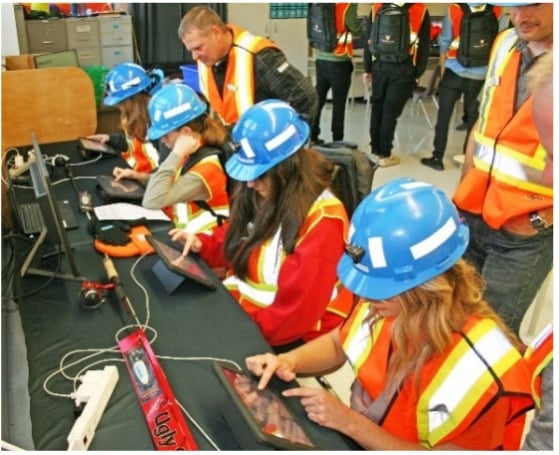
COMMUNITY INVESTMENT SPOTLIGHT
Read More
In May and October 2023, the Island Gold Mine facilitated “Mining Showcase” events at two Wawa high schools – École Secondaire St. Joseph and Michipicoten High School. Representatives from each of Island Gold’s 13 mine departments facilitated role-relevant activities at dedicated stations, providing students the opportunity to explore the various careers possible in the mining industry. The events fostered many engaging conversations and helped to generate industry awareness among local students.
Proportion of Total Procurement Budget Spent on Local Suppliers3
Table 4.3
| Procurement Data | Alamos Total | Operations: Young-Davidson |
Operations: Island Gold |
Operations: Mulatos4 |
Projects: Lynn Lake |
Offices: Toronto Head Office |
|---|---|---|---|---|---|---|
| Total Procurement Spend ($) | $765,432,000 | $186,002,000 | $265,782,000 | $277,102,000 | $14,793,000 | $21,753,000 |
| Percent Spent on Local Suppliers | 33% | 14% | 10% | 64% | 41% | 69% |
| Percent Spent on National Suppliers | 66% | 85% | 90% | 34% | 59% | 22% |
| Percent Spent on International Suppliers | 1% | 1% | 0% | 2% | 0% | 9% |
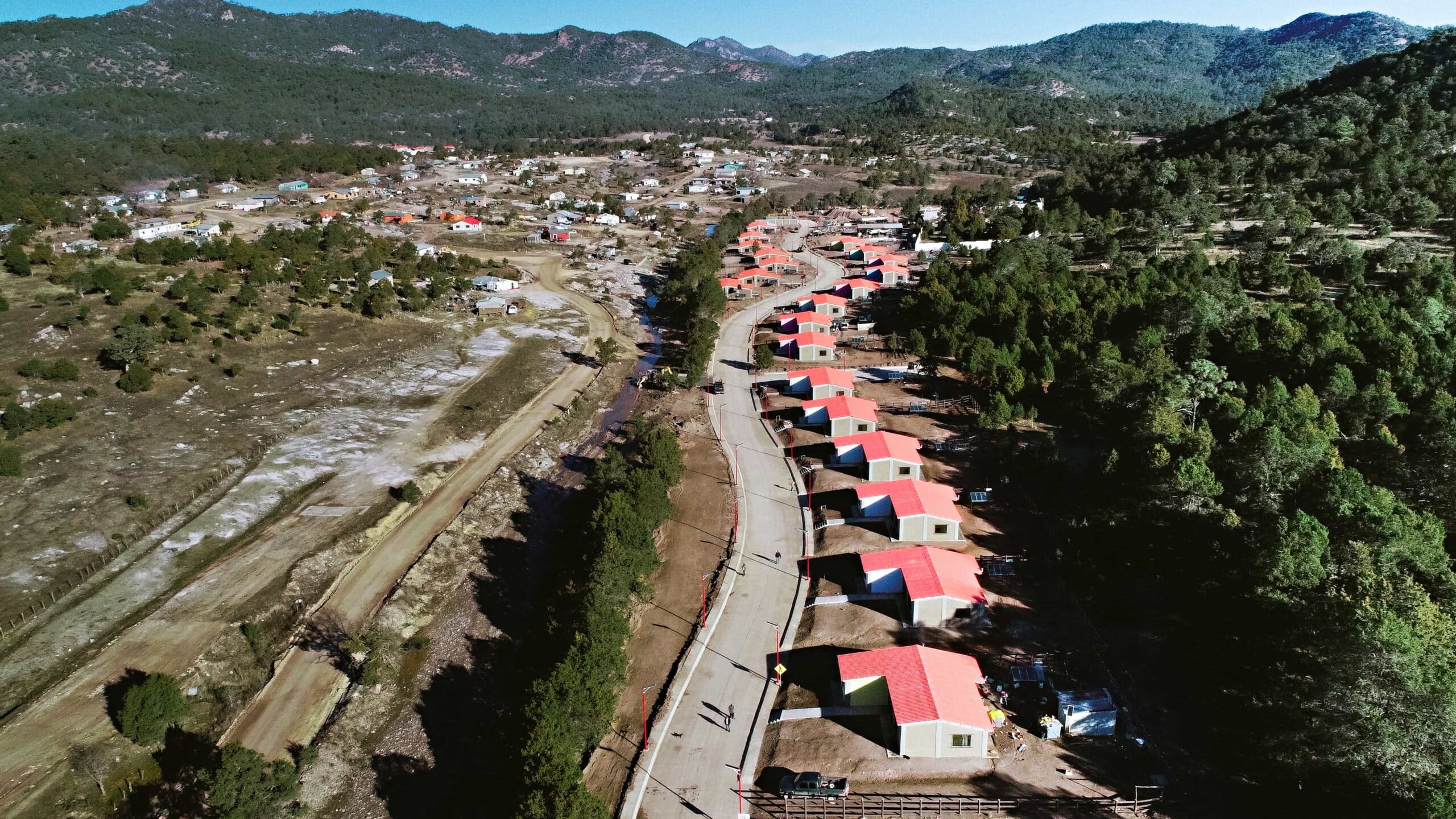
Housing & Land
The nature of mining is that it often requires the temporary occupation of significant amounts of land and the employment of significant numbers of people. These inherent, unmitigable factors can create pressure on housing and land tenure for local communities – particularly in remote areas where resources are limited to begin with. Alamos understands and actively discusses the status of housing with local stakeholders.
The Young-Davidson Mine is located 3km west of Matachewan township, a small community of approximately 268 permanent residents in Timiskaming, Ontario. The local economy today is based largely around mining and forestry with some fishing and hunting tourism. The economy has been reinvigorated due to continued growth at Young-Davidson, following economic challenges in the early 2000s due to the closure of local mines. Though the mine attracts a large workforce, pressures on Matachewan township have been few as the majority of the mine workforce commutes from Kirkland Lake, Temiskaming Shores and other communities in the region. Local negative impacts of the mine include increased demand for housing and escalating prices, increased traffic through Matachewan township (employees and suppliers), and increased strain on municipal landfill and capacity.
The Island Gold Mine is situated near the township of Dubreuilville in Algoma, Ontario, which was founded as a single-industry lumber town supporting a sawmill. Since the mill’s closure in 2008, the town has transitioned from one with minimal industry to a mining town supported by the growth of Island Gold and other local mines. Transitions of this nature can shift social and economic dynamics, with effects on local residents and businesses depending on their direct or indirect relationship to the mine. 44% of the mine’s workforce is from the local area. Local negative impacts of the mine include increased demand for local housing and escalating prices, increased strain on municipal landfill and capacity, increased traffic and associated dust emissions from gravel roads, impediments on access to hunting areas, and a shift in community culture from a majority francophone population to a greater mix of francophone and anglophone residents.
The Mulatos Mine is nested in the Sierra Madre Occidental mountain range of Sonora, Mexico. Local residents near the mine, particularly in the small village of Mulatos, have been directly affected by the mine’s operation and growth. This growth has resulted in village residents being voluntarily relocated as part of a multiyear project beginning in 2016 that was undertaken with extensive consultation and collaboration with the communities involved. Alamos worked with social performance experts to design and manage a resettlement program and followed leading practices including IFC Performance Standard 5. To support relocation, Alamos constructed 21 new homes (each with three bedrooms) in the nearby town of Matarachi, as well as a new education center, church, and medical clinic. At the end of 2023, 64 of 67 households from the village of Mulatos had voluntarily signed resettlement agreements and relocated to Matarachi, Hermosillo, Sahuaripa, or Chihuahua. Of the three households that have not finalised agreements, only one lives in the Mulatos village.
References
Footnotes
- Young-Davidson: Timiskaming, Kirkland Lake, Matachewan, Elk Lake, and their immediate surrounding areas. Island Gold: Wawa, Dubreuilville, White River, and their immediate surrounding areas. Mulatos: Sonora State. Lynn Lake: Northern Manitoba. ↩
- Superintendent, Manager, and above. ↩
- Young-Davidson: Timiskaming, Kirkland Lake, Matachewan, Elk Lake, and their immediate surrounding areas. Island Gold: Wawa, Dubreuilville, White River, and their immediate surrounding areas. Mulatos: Sonora State. Lynn Lake: Northern Manitoba. ↩
- Procurement spends at the Hermosillo Office have been included in the Mulatos figure for this indicator. ↩

